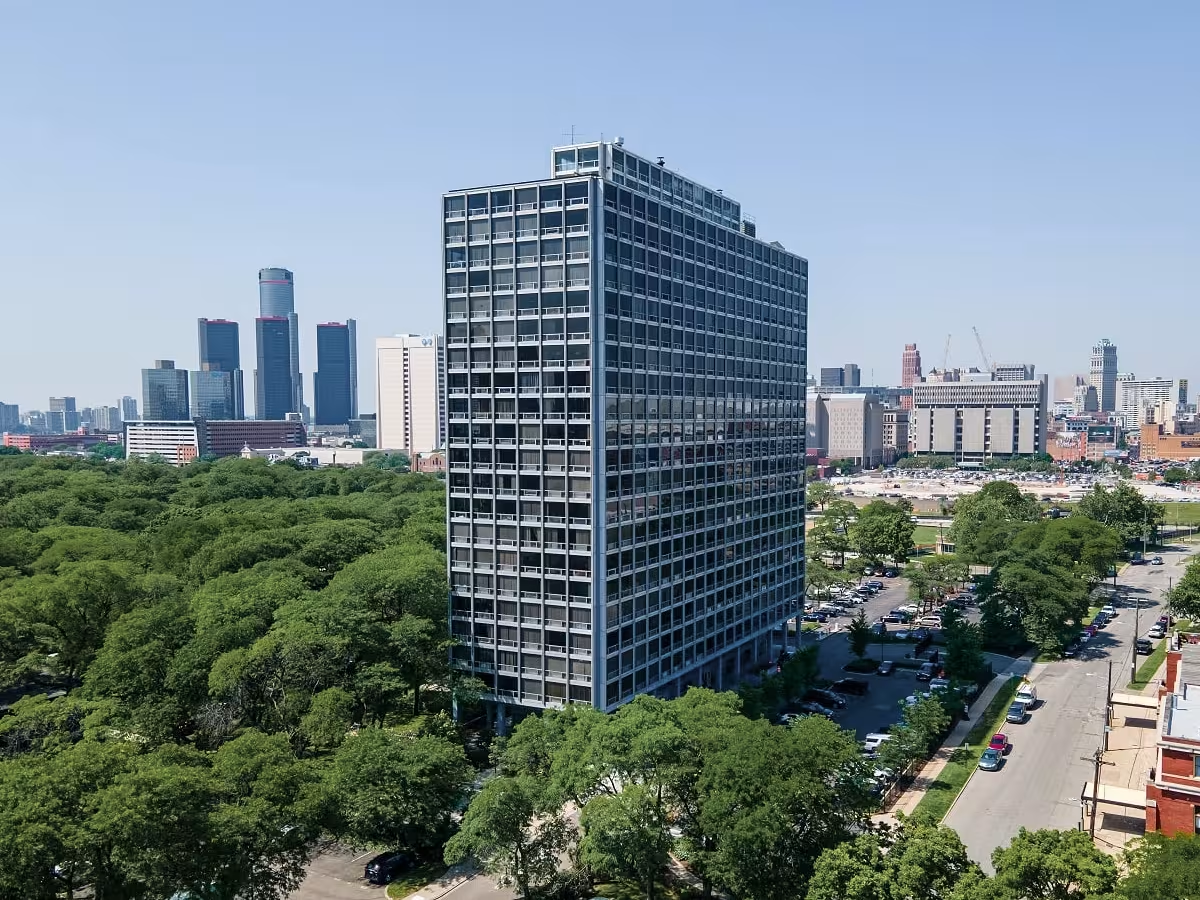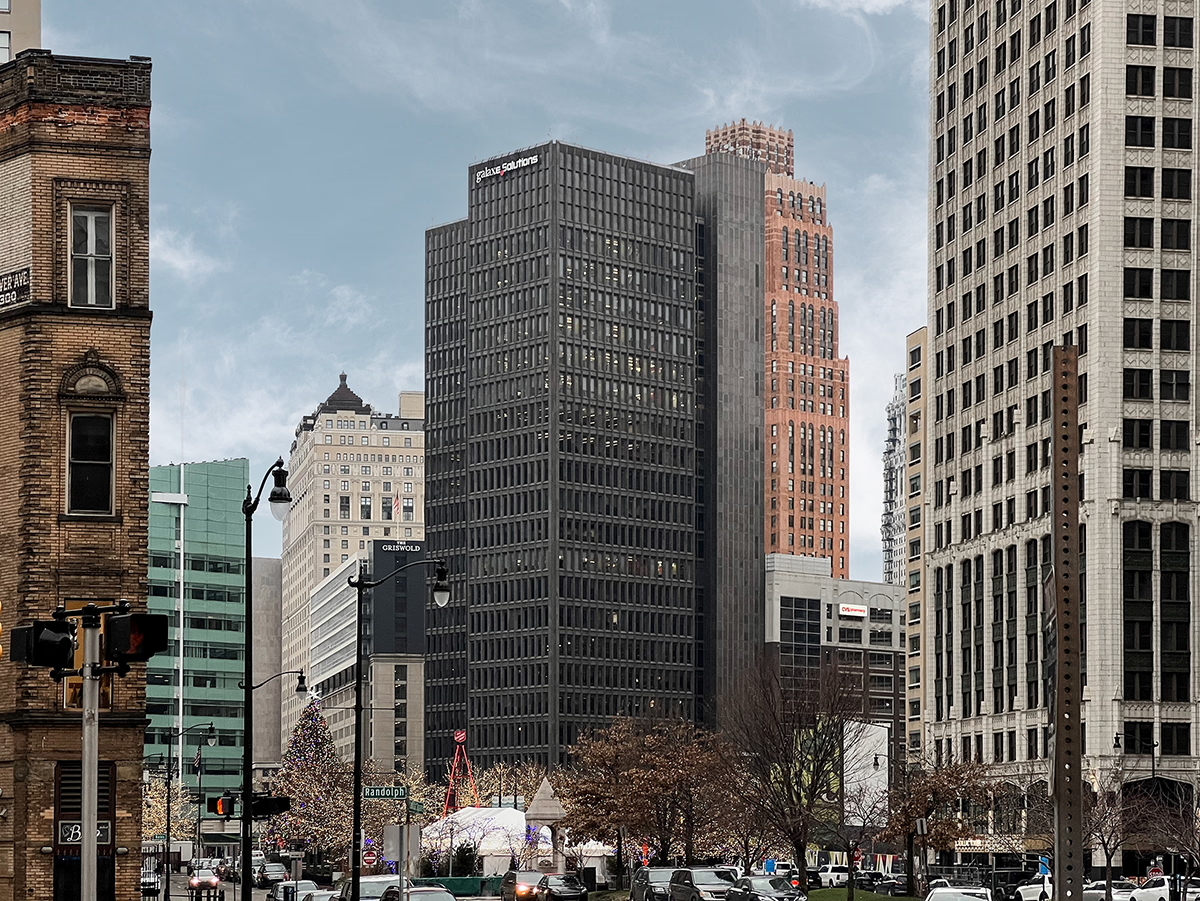Lafayette Pavilion Apartments vs 1001 Woodward


Comparing the Lafayette Pavilion Apartments and the 1001 Woodward is interesting because they both rise in Detroit, MI, yet they were conceived by two different design teams, Mies van der Rohe and Smith, Hinchman & Grylls, and were completed at different points in time. They were finished more than 7 years apart.
This contrast within the same city allows us to see how different creative minds interpreted the evolving needs of Detroit across time.
Let's take a closer look!
Height & Size
The 1001 Woodward is clearly the larger tower of the two, both in terms of height and number of floors. It rises to 338ft (103m) with 23 floors above ground, while the Lafayette Pavilion Apartments reaches 220ft (67m) with 22 floors above ground.
Of course, each project may have faced different briefs or regulatory constraints, which we don't really know about and could also explain the outcome.
Architectural Style
Both the Lafayette Pavilion Apartments and the 1001 Woodward were designed in line with the aesthetic conventions of the International Style style.
At the time, this style was at the height of its popularity. So both Mies van der Rohe and Smith, Hinchman & Grylls followed what was in many ways expected of them, producing designs that fit comfortably within contemporary architectural norms, rather than breaking with convention.
Uses
The Lafayette Pavilion Apartments is primarily residential, while the 1001 Woodward is primarily commercial.
The Lafayette Pavilion Apartments offers 340 residential units.
Structure & Facade
Both the Lafayette Pavilion Apartments and the 1001 Woodward rely on a Frame structural system.
A frame structure uses a grid of columns and beams to carry the building's loads. This frees the walls from structural duties, allowing for flexible floor plans and larger windows.
They also employ the same type of facade, a Window Wall facade.
A window wall system is installed between floor slabs. It is simpler and faster to build than curtain walls, but exposes slab edges and requires careful detailing to avoid thermal bridges.
| Lafayette Pavilion Apartments | 1001 Woodward | |
|---|---|---|
| Mies van der Rohe | Architect | Smith, Hinchman & Grylls |
| 1955 | Construction Started | 1963 |
| 1958 | Year Completed | 1965 |
| International Style | Architectural Style | International Style |
| Residential | Current Use | Commercial |
| 22 | Floors Above Ground | 23 |
| 1 | Floors Below Ground | 2 |
| 67 m | Height (m) | 103 m |
| Frame | Structure Type | Frame |
| Concrete | Vertical Structure Material | Steel |
| Concrete | Horizontal Structure Material | Concrete |
| Aluminum, Glass | Main Facade Material | Glass, Granite |
| MI | State | MI |
| Detroit | City | Detroit |
| 1 Lafayette Plaisance | Address | 1001 Woodward Avenue |